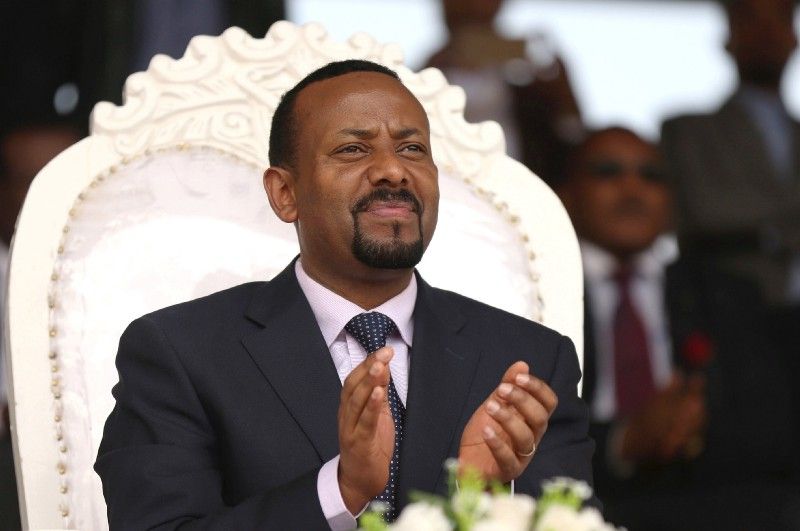Both men took power only recently. Both come from within the broken authoritarian systems they promise to fix. And both — Zimbabwe’s President Emmerson Mnangagwa and Ethiopia’s Prime Minister Abiy Ahmed (pictured above) — were apparently targeted for death last weekend.
In Zimbabwe, a bomb exploded inches from Mr. Mnangagwa during a campaign rally. “It is not my time,” he said. (We’ve written backgrounders hereand here on Mnangagwa, nicknamed the Crocodile, who once survived attempted assassination by ice cream.)
Who did it? Ahead of what could be Zimbabwe’s first remotely fair elections in decades, the field of suspects is wide. Some within the ruling ZANU-PF party hate Mnangagwa because he toppled long-serving strongman Robert Mugabe last November — and because he’s pledged to open the system in ways that threaten them. Opposition supporters hate him because he was once Mugabe’s enforcer, the head of his ruthless security service. The attack on Mnangagwa took place in the city of Bulawayo, an opposition stronghold, but the near miss suggests it might have been an inside job.
In Ethiopia, someone lobbed a grenade at Prime Minister Abiy Ahmed as he addressed tens of thousands at a rally in Addis Ababa in support of his reform plans. Two were killed and more than one hundred injured.
The youthful Mr. Abiy took power in April after months of riots against government repression left hundreds dead. Since then, Abiy has lifted a state of emergency, begun a nationwide listening tour to ease ethnic tensions, released thousands of political prisoners, pledged to privatize struggling state companies, and signaled agreement on a long-frozen deal to formally end the war with neighboring Eritrea.
It’s still more talk than action, but the promises themselves are big news in one of Africa’s most historically repressive regimes.
Now, Zimbabwe and Ethiopia sit 2,500 miles apart. They are very different countries with different strengths, burdens, and political histories. But they have this in common: each has a new leader who promises big changes to a deeply entrenched authoritarian system. And each man has enemies who want to see him dead.
